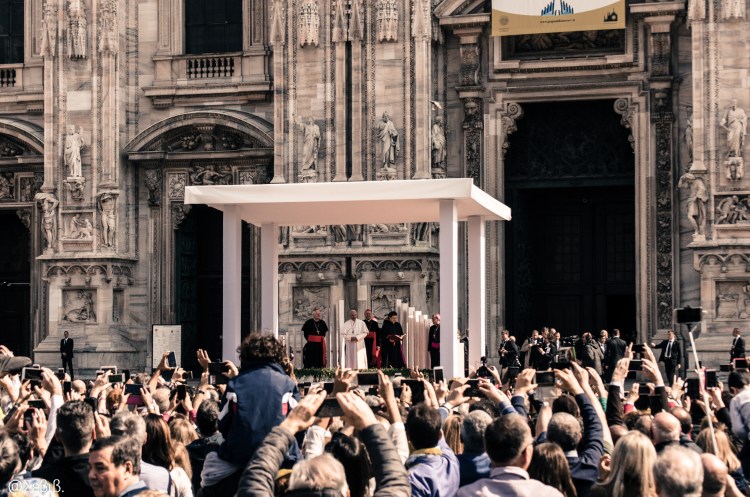Published in a recent issue of Open Theology, an article by Kristóf Oltvai, a graduate student at the University of Chicago’s Divinity School, indicates that, upon a close reading, the apostolic exhortations of Jorge Bergoglio, the current, 266th Pope Francis of the Roman Catholic Church, can be approached as reflecting in their style and terminology borrowings from the French theological phenomenology, such as that of Emmanuel Levinas and Jean-Luc Marion.
A Blog Article by Pablo Markin.
This development echoes the theological turn in French phenomenology, which concentrates on the place of encounter in religious experience. For Levinas, a French germanophone philosopher of Jewish-Lithuanian origin who studied phenomenology under the guidance of Edmund Husserl and was acquainted with Martin Heidegger in the 1920s, facing the other has religious, transcendental implications. From the perspective of Levinas, as Ronald L. Mercer, Jr., argues, the transcendental experience of encounter is where the subject arises, the self receives its structure and the divine becomes accessible. According to theological phenomenology, religious experience derives from the human situation.
Oltvai argues that Pope Francis, born as Jorge Bergoglio in Buenos Aires, Argentina, departs from the Thomistic positions of his predecessor, while adopting the notions of the face, the gaze and the other in his pontifical communication, such as in Evangelii gaudium and Amoris Laetitia. This stands close to the philosophical positions of not only Levinas, but also those of Marion, a French Catholic theologian, phenomenological philosopher and a student of Jacques Derrida. From these positions, it follows that religious faith is the product of encountering the gaze of the other. In relation to Jesus Christ, this allows for the experience of mercy, while structuring the Roman Catholic Church as the community of witnesses to this transcendental experience.
Correspondingly, Oltvai reads the ecclesiological texts of Pope Francis in terms of kerygmatic hermeneutics, as an interpretation of apostolic proclamations of Christian salvation, which connects the community of religious believers with the encounter of the other as a situation in which the experience of mercy arises. This interpretation draws attention to the passages in Evangelii gaudium in which Pope Francis emphasizes the experience of the gaze as the foundation of Christian faith. Likewise, Oltvai analyses Amoris Laetitia as guided by the religious phenomenology of the gaze, as the situation in which the Roman Catholic Church participates on behalf of Jesus Christ as a figure of the encounter with love.
The phenomenological primacy of the experience of encounter, thus, anchors theology in its kerygmatic origin. This corresponds to the phenomenological, Husserl-based position, as expressed by Florinda Martíns et al., that the revelation is inseparable from the manner in which the revealed, as a phenomenological entity, is experienced or encountered and the situation in which this occurs. More generally, both the classical French sociologist Gabriel Tarde and the contemporary Slovenian philosopher Slavoj Žižek have also referred to love for the other as the basis for sociality that transforms crowds into communities, spiritual and otherwise, even though it is a phenomenological sensation, rather than an intentional act, as Simon Runkel suggests.
This shows the relevance of phenomenology to the contemporary philosophical and Christian theological discourse on religious faith.
By Pablo Markin

